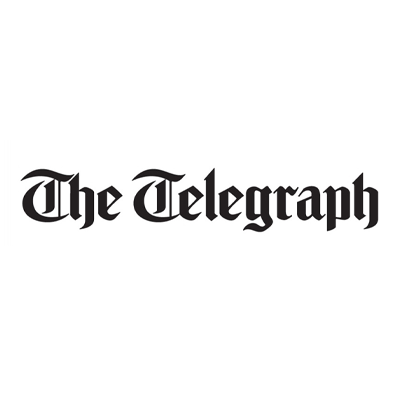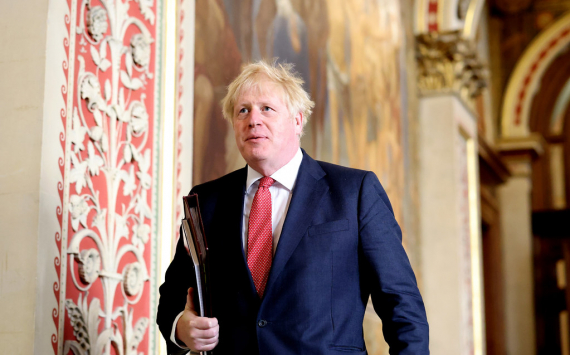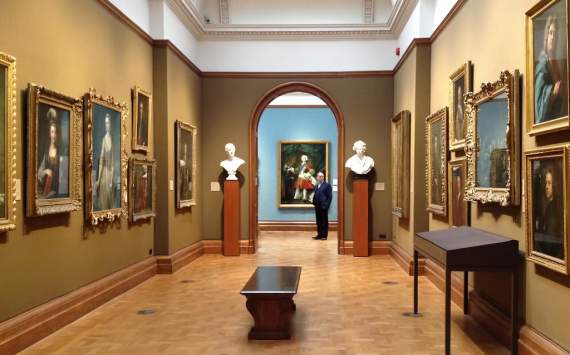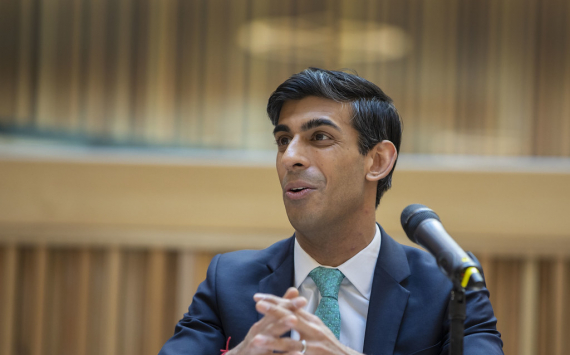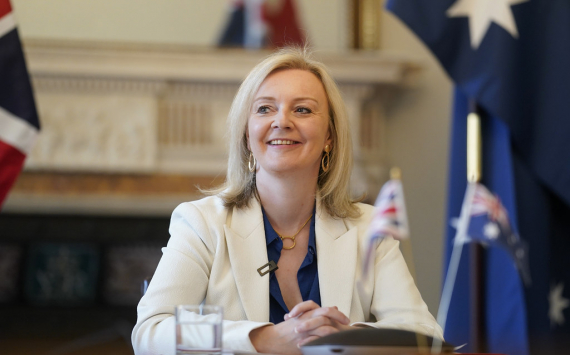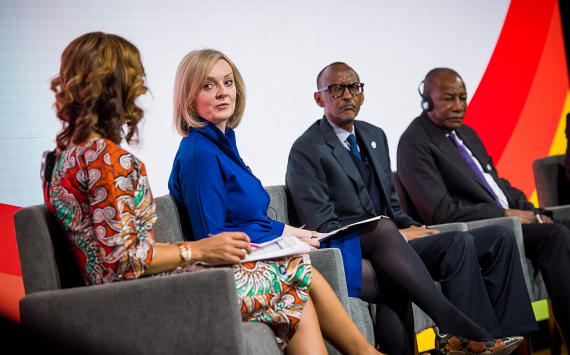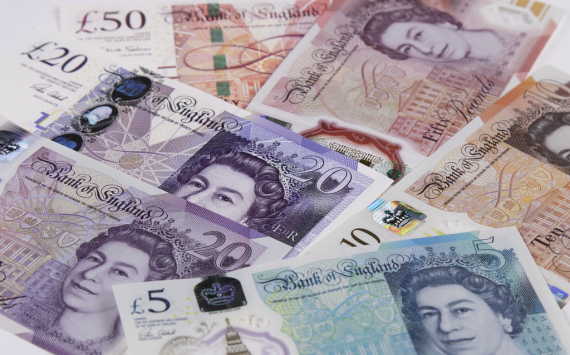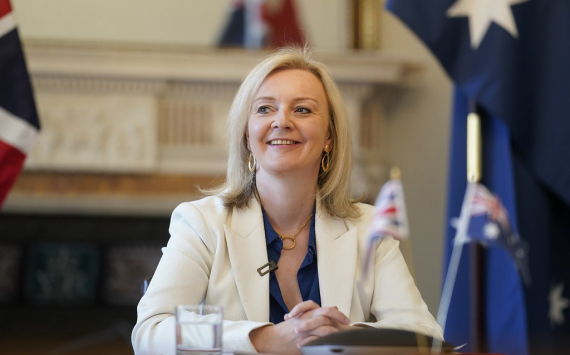Description
The Daily Telegraph is a national British daily broadsheet newspaper published in London by Telegraph Media Group and distributed across the United Kingdom and internationally.
It was founded by Arthur B. Sleigh in 1855 as The Daily Telegraph & Courier. Considered a newspaper of record over The Times in the UK when the Conservatives are in power, The Telegraph generally has a reputation for high-quality journalism, and has been described as being "one of the world's great titles".
The paper's motto, "Was, is, and will be", appears in the editorial pages and has featured in every edition of the newspaper since 19 April 1858. The paper had a circulation of 363,183 in December 2018, descending further until it withdrew from newspaper circulation audits in 2019, having declined almost 80%, much faster than industry trends,[failed verification] from 1.4 million in 1980. Its sister paper, The Sunday Telegraph, which started in 1961, had a circulation of 281,025 as of December 2018. The two sister newspapers are run separately, with different editorial staff, but there is cross-usage of stories.
The Telegraph has had a number of news scoops, including the outbreak of World War II by rookie reporter Clare Hollingworth, described as "the scoop of the century", the 2009 MP expenses scandal – which led to a number of high-profile political resignations and for which it was named 2009 British Newspaper of the Year – and its 2016 undercover investigation on the England football manager Sam Allardyce.
History
Founding and early history
The Daily Telegraph and Courier was founded by Colonel Arthur B. Sleigh in June 1855 to air a personal grievance against the future commander-in-chief of the British Army, Prince George, Duke of Cambridge. Joseph Moses Levy, the owner of The Sunday Times, agreed to print the newspaper, and the first edition was published on 29 June 1855. The paper cost 2d and was four pages long. Nevertheless, the first edition stressed the quality and independence of its articles and journalists:
We shall be guided by a high tone of independent action.
However, the paper was not a success, and Sleigh was unable to pay Levy the printing bill. Levy took over the newspaper, his aim being to produce a cheaper newspaper than his main competitors in London, the Daily News and The Morning Post, to expand the size of the overall market. Levy appointed his son, Edward Levy-Lawson, Lord Burnham, and Thornton Leigh Hunt to edit the newspaper. Lord Burnham relaunched the paper as The Daily Telegraph, with the slogan "the largest, best, and cheapest newspaper in the world". Hunt laid out the newspaper's principles in a memorandum sent to Levy: "We should report all striking events in science, so told that the intelligent public can understand what has happened and can see its bearing on our daily life and our future. The same principle should apply to all other events—to fashion, to new inventions, to new methods of conducting business".
In 1876, Jules Verne published his novel Michael Strogoff, whose plot takes place during a fictional uprising and war in Siberia. Verne included among the book's characters a war correspondent of The Daily Telegraph, named Harry Blount—who is depicted as an exceptionally dedicated, resourceful and brave journalist, taking great personal risks to follow closely the ongoing war and bring accurate news of it to The Telegraph's readership, ahead of competing papers.
1901 to 1945
In 1908, Kaiser Wilhelm II of Germany gave a controversial interview to The Daily Telegraph that severely damaged Anglo-German relations and added to international tensions in the build-up to World War I. In 1928, the son of Baron Burnham, Harry Lawson Webster Levy-Lawson, 2nd Baron Burnham, sold the paper to William Berry, 1st Viscount Camrose, in partnership with his brother Gomer Berry, 1st Viscount Kemsley and Edward Iliffe, 1st Baron Iliffe.
In 1937, the newspaper absorbed The Morning Post, which traditionally espoused a conservative position and sold predominantly amongst the retired officer class. Originally William Ewart Berry, 1st Viscount Camrose, bought The Morning Post with the intention of publishing it alongside The Daily Telegraph, but poor sales of the former led him to merge the two. For some years, the paper was retitled The Daily Telegraph and Morning Post before it reverted to just The Daily Telegraph. In the late 1930s, Victor Gordon Lennox, The Telegraph's diplomatic editor, published an anti-appeasement private newspaper The Whitehall Letter that received much of its information from leaks from Sir Robert Vansittart, the Permanent Under-Secretary of the Foreign Office, and Rex Leeper, the Foreign Office's Press Secretary. As a result, Gordon Lennox was monitored by MI5. In 1939, The Telegraph published Clare Hollingworth's scoop that Germany was to invade Poland.
In November 1940, with Fleet Street subjected to almost daily bombing raids by the Luftwaffe, The Telegraph started printing in Manchester at Kemsley House (now The Printworks entertainment venue), which was run by Camrose's brother Kemsley. Manchester quite often printed the entire run of The Telegraph when its Fleet Street offices were under threat. The name Kemsley House was changed to Thomson House in 1959. In 1986, printing of Northern editions of the Daily and Sunday Telegraph moved to Trafford Park and in 2008 to Newsprinters at Knowsley, Liverpool.
During the Second World War, The Daily Telegraph covertly helped in the recruitment of code-breakers for Bletchley Park. The ability to solve The Telegraph's crossword in under 12 minutes was considered to be a recruitment test. The newspaper was asked to organise a crossword competition, after which each of the successful participants was contacted and asked if they would be prepared to undertake "a particular type of work as a contribution to the war effort". The competition itself was won by F. H. W. Hawes of Dagenham who finished the crossword in less than eight minutes.
1946 to 1985
Both the Camrose (Berry) and Burnham (Levy-Lawson) families remained involved in management until Conrad Black took control in 1986. On the death of his father in 1954, Seymour Berry, 2nd Viscount Camrose assumed the chairmanship of the Daily Telegraph with his brother Michael Berry, Baron Hartwell as his editor-in-chief. During this period, the company saw the launch of sister paper The Sunday Telegraph in 1960.
1986 to 2004
Canadian businessman Conrad Black, through companies controlled by him, bought the Telegraph Group in 1986. Black, through his holding company Ravelston Corporation, owned 78% of Hollinger Inc. which in turn owned 30% of Hollinger International. Hollinger International in turn owned the Telegraph Group and other publications such as the Chicago Sun-Times, the Jerusalem Post and The Spectator.
On 18 January 2004, Black was dismissed as chairman of the Hollinger International board over allegations of financial wrongdoing. Black was also sued by the company. Later that day, it was reported that the Barclay brothers had agreed to purchase Black's 78% interest in Hollinger Inc. for £245m, giving them a controlling interest in the company, and to buy out the minority shareholders later. However, a lawsuit was filed by the Hollinger International board to try to block Black from selling his shares in Hollinger Inc. until an investigation into his dealings was completed. Black filed a countersuit but, eventually, United States judge Leo Strine sided with the Hollinger International board and blocked Black from selling his Hollinger Inc. shares to the twins.
On 7 March 2004, the twins announced that they were launching another bid, this time just for The Daily Telegraph and its Sunday sister paper rather than all of Hollinger Inc. The then owner of the Daily Express, Richard Desmond, was also interested in purchasing the paper, selling his interest in several pornographic magazines to finance the initiative. Desmond withdrew in March 2004, when the price climbed above £600m, as did Daily Mail and General Trust plc a few months later on 17 June.
Since 2004
In November 2004, The Telegraph celebrated the tenth anniversary of its website, Electronic Telegraph, now renamed www.telegraph.co.uk. The Electronic Telegraph launched in 1995 with The Daily Telegraph Guide to the Internet' by writer Sue Schofield for an annual charge of £180.00. On 8 May 2006, the first stage of a major redesign of the website took place, with a wider page layout and greater prominence for audio, video and journalist blogs.
On 10 October 2005, The Daily Telegraph relaunched to incorporate a tabloid sports section and a new standalone business section. The Daily Mail's star columnist and political analyst Simon Heffer left that paper in October 2005 to rejoin The Daily Telegraph, where he has become associate editor. Heffer has written two columns a week for the paper since late October 2005 and is a regular contributor to the news podcast. In November 2005 the first regular podcast service by a newspaper in the UK was launched. Just before Christmas 2005, it was announced that The Telegraph titles would be moving from Canada Place in Canary Wharf, to new offices at Victoria Plaza at 111 Buckingham Palace Road near Victoria Station in central London. The new office features a "hub and spoke" layout for the newsroom to produce content for print and online editions.
In October 2006, with its relocation to Victoria, the company was renamed the Telegraph Media Group, repositioning itself as a multimedia company. On 2 September 2008, the Daily Telegraph was printed with colour on each page for the first time when it left Westferry for Newsprinters at Broxbourne, Hertfordshire, another arm of the Murdoch (Rupert Murdoch) company. The paper is also printed in Liverpool and Glasgow by Newsprinters. In May 2009, the daily and Sunday editions published details of MPs' expenses. This led to a number of high-profile resignations from both the ruling Labour administration and the Conservative opposition.
In June 2014, The Telegraph was criticised by Private Eye for its policy of replacing experienced journalists and news managers with less-experienced staff and search engine optimisers.
On 26 October 2019, the Financial Times reported that the Barclay Brothers were about to put the Telegraph Media Group up for sale. The Financial Times also reported that the Daily Mail and General Trust (owner of the Daily Mail, The Mail on Sunday, Metro and Ireland on Sunday) would be interested in buying.


